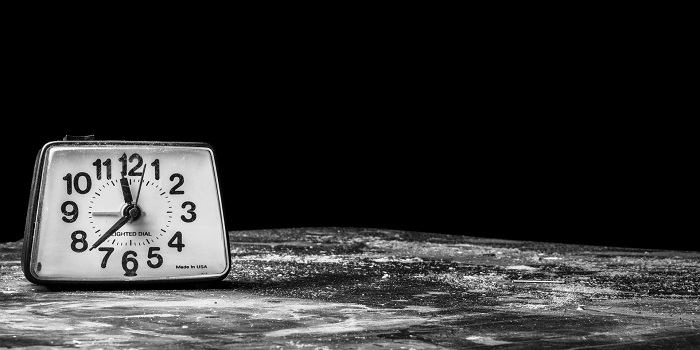
The alarm clock rings. It’s morning. You groggily open your eyes even though you feel like you just went to bed. Now your mood sucks even though you thought you got enough sleep last night. New research from Johns Hopkins Medicine may explain your predicament.
In a new study published in the journal Sleep, researchers suggest those who face sleep interruptions are more likely to wake up in a bad mood than those who received less sleep overall.
For their study, researchers subjected 62 healthy men and women to three experimental sleep conditions in a clinical setting. One group faced three consecutive nights of “forced awakenings” at random times, one group had “delayed bedtimes” and the control group was allowed to sleep uninterrupted. All participants completed a mood assessment questionnaire before each bedtime.
Both the delayed and interrupted sleep groups reported negative moods after the first night. However, the noticeable differences came after the second night, with the “forced awakenings” group reporting a 31 percent decrease in positive mood. The “delayed bedtime” group only reported a 12 percent decrease in mood.
Patrick Finan, Ph.D., the study’s author as well as a professor of psychiatry and behavioral sciences at Johns Hopkins, explained the importance of sleep in regards to mood.
"When your sleep is disrupted throughout the night, you don't have the opportunity to progress through the sleep stages to get the amount of slow-wave sleep that is key to the feeling of restoration," Finan said.
In addition to muscle recovery, proper sleep increases mental alertness during the following day. For an athlete, this might make the difference between making it to the gym at 5 a.m. and punching the snooze button one more time.
Interrupted sleep affected subjects’ energy levels as well as feelings of sympathy and friendliness. Even worse, the effects were cumulative over the multiple nights of the study. According to Finan, further studies will need to be done to learn more about sleep stages in populations with insomnia as well as the role played by a night of recovery sleep.
Header image via Pixabay








